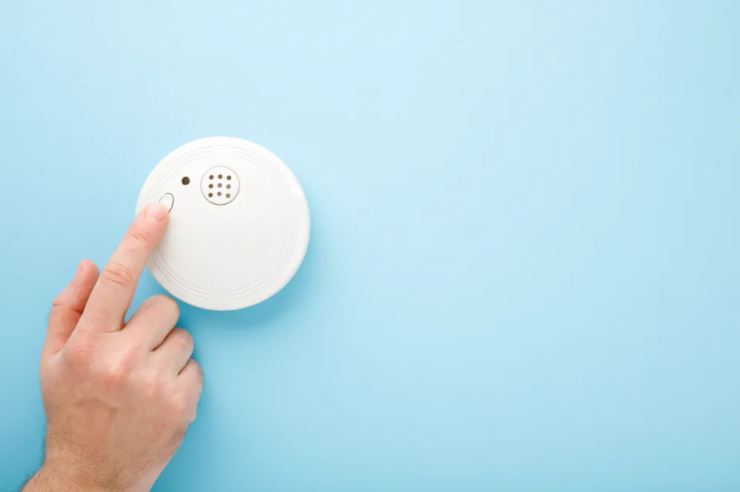An alarm could “smell” if someone is infected with the coronavirus, research suggests.
The dominant Delta variant, which emerged in India, is thought to be behind the UK’s rising coronavirus cases – up 49.3% over the past week.
In a bid to get more people vaccinated, the lifting of restrictions in England – which had been slated for 21 June – has been delayed by four weeks.
With many keen to return to the lives we once knew, scientists from the Biotech firm RoboScientific have developed sensors that detect the coronavirus’ unique odour.
To put the device to the test, a team from the London School of Hygiene & Tropical Medicine (LSHTM) ran the sensors over socks that had been worn by 54 people, half of whom had mild or asymptomatic coronavirus.
Results – which have not yet been published in a peer-reviewed journal – reveal the device picked up on the socks worn by coronavirus carriers or people without an infection up to 100% of the time.
Polymerase chain reaction (PCR) tests are considered the gold-standard approach to diagnosing the coronavirus. This often requires a swab being sent to a laboratory, with the result coming back several days later.
The RoboScientific device could provide a faster reading, helping to save time and the money that comes with mass testing. The sensors could even one day be fitted in classrooms and aeroplane cabins to ward off outbreaks.
“These results are really promising and demonstrate the potential for using this technology as a rapid, non-invasive test with incredible accuracy,” said lead author Professor James Logan, from the LSHTM.
“If these devices are successfully developed for use in public places, they could be affordably and easily scaled up.
“They also could protect people against future disease outbreaks, with capability to develop sensor arrays to detect other diseases within a number of weeks.”
Infections change the chemical reactions that take place in cells, producing products that have a distinct odour.
Dogs and even bees are being trained to pick up on this scent, however, animals may be insufficient to detect the infection on a large scale.
RoboScientific has therefore developed a 12-sensor device that captures the “odour profile” released by a coronavirus carrier, of whom around a third develop no symptoms.
The device was exposed to socks worn by coronavirus carriers and healthy volunteers.
On the first day of the experiment, it picked up on whether the socks had been worn by an infected individual up to 99% of the time, rising to 100% on day two.
“We started our research with a blank sheet of paper and asked the question: Does COVID-19 [the disease caused by the coronavirus] have a distinct smell?,” said co-author Professor Steve Lindsay, from Durham University.
“We ended the research showing a clear separation between the odours of people infected with the virus and those uninfected.
“COVID most definitely has a very distinct smell.
“This is real discovery science and very exciting for the development of screening methods for the disease.”
Source: Coronavirus alarm detects infection’s ‘scent’ with up to 100% accuracy













